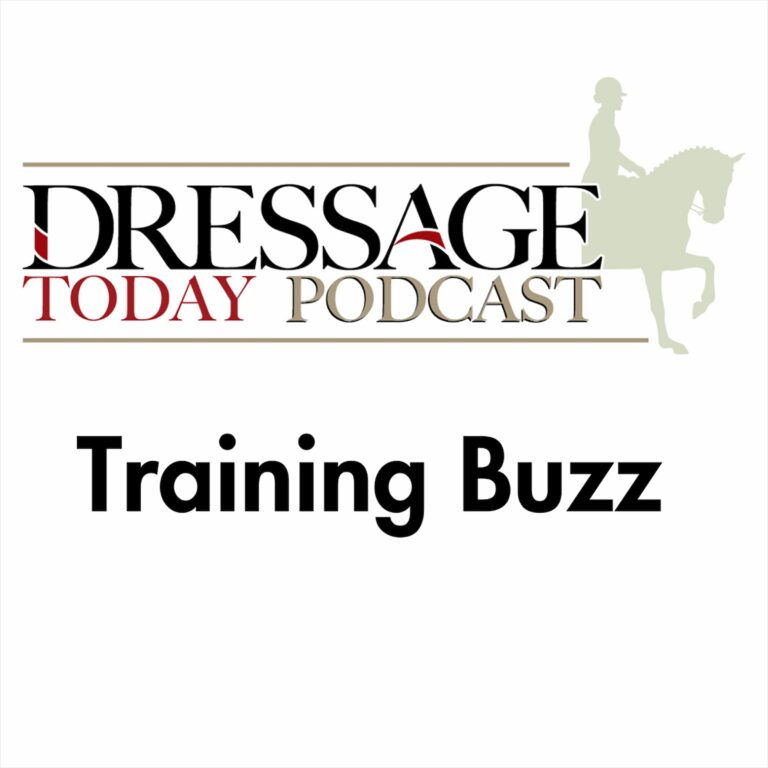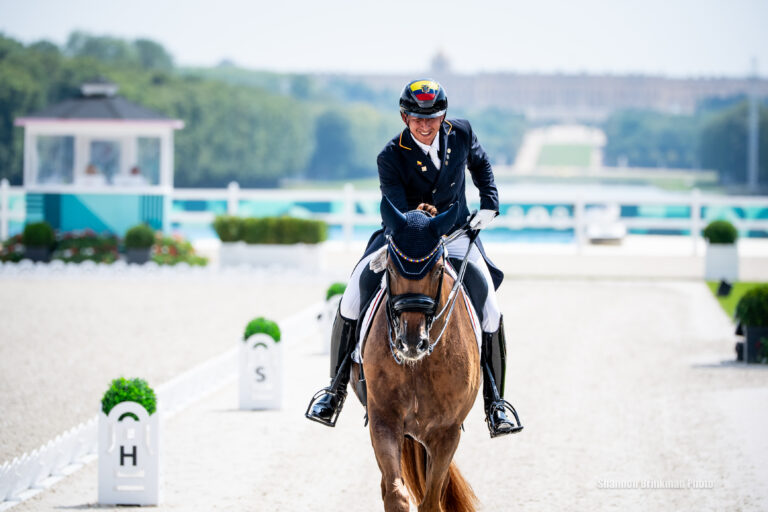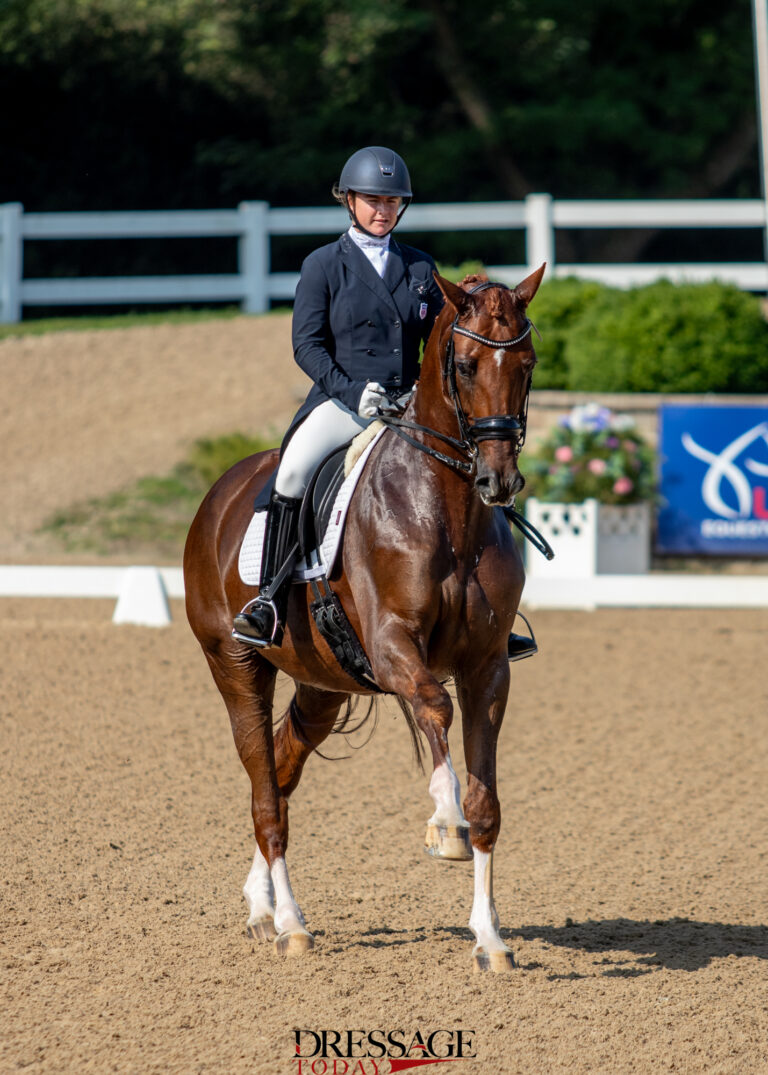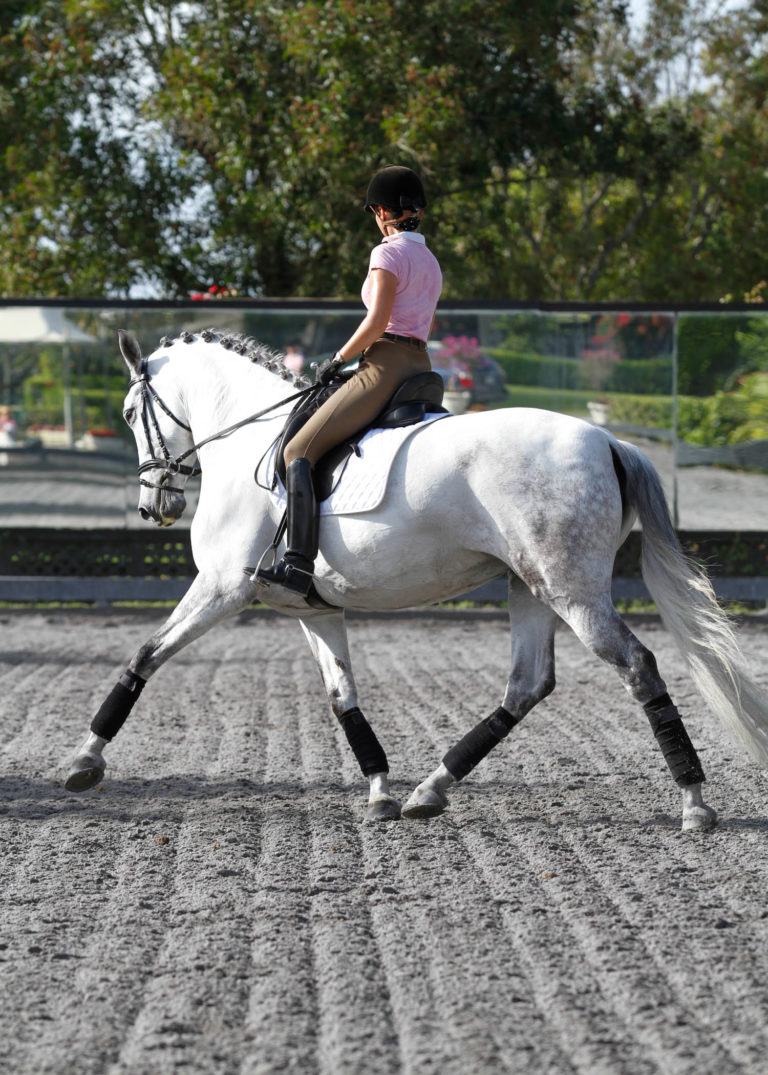My biggest lesson in dressage was learning to integrate emotional agility into my riding—the ability to move my focus gracefully from my inner experience to my horse; in other words, adjusting my mind’s position to be more effective as a rider.
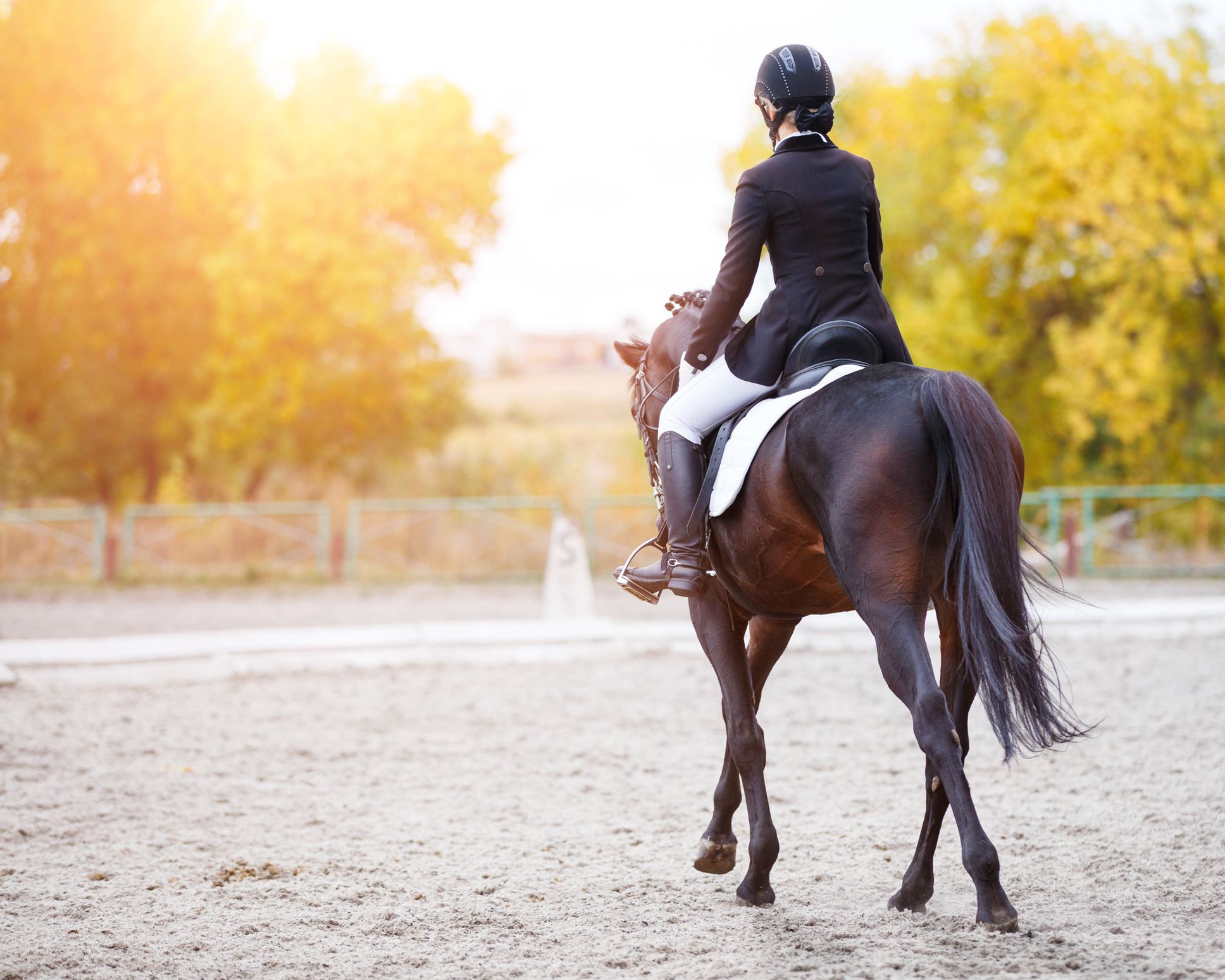
I’ve found this to be particularly helpful in the warm-up arena when I hear other trainers coach their students and I get caught up in what they are saying as well as the tone they are speaking in. In such a situation in the past, I often ended up asking myself whether I was doing what they were telling students not to do. Did I make the mistakes they made, and was I about to ruin my score?
For example, one day one of the riders in the warm-up ring practiced flying changes over and over. Listening to her being coached, I started to think I had not done enough, although I knew just what sequence I needed for a proper warm-up. The coaching going on around me distracted me tremendously. In such situations, I would become my own worst enemy, telling myself I was not good enough or that my horses were not fancy enough. I ran destructive tape loops in my head over and over.
Learning how to stay focused on my horse and not get caught up in other riders’ emotions helped me to adjust my mind to be fully present on my horse and effective as a rider.
I deliberately remembered how I got to the level I was at, and realized it could not get taken away from me. I made sure to refocus on my horse, who I had ridden more than any other horse and who I knew better than even my trainer. I made an effort to tune out and turn inward. I told myself that I had a right to the space I was using. Setting myself up by using those thoughts, I was able to flow with the emotion of the competition and still stay with and respect my own knowledge. I knew that letting go of the control—focusing on the things going on around me—was a sure way to sabotage my ride. I learned to place a bubble around me, a bubble of safety filled with my own focus, and not let in what other coaches were saying to other riders. Helmeted microphones turned out to be a great way to tune myself out of other riders’ issues in the warm-up ring.
By tuning out and relying on my focused mind, I also started to know when it was time to leave the warm-up arena, when to stop trying to improve something in the last minute, and when to just go for a walk with my horses. I suddenly realized I was able to access and listen to my intuition—trusting a fleeting thought that something is right or is not right—and listen to my heart, not my head.
Intuition is a muscle we were all born with. Like any other muscle, if not used, it will not grow. After I had enough Grand Prix tests under my belt to know I may not win, I knew I could have the time of my life when the whistle blows. No matter what happens, I knew I’d still come out of that ring with a feeling of accomplishment. Yes, I will see the things that need work, but I will know that whatever happened in the ring is only a reflection of where I was at that moment, not a life sentence.
This article is from the Dressage Today magazine archives.
Shelley Rosenberg is a U.S. Dressage Federation (USDF) “L” Education Program graduate and USDF Certified Instructor through Second Level. With more than 30 years of experience in all disciplines, she teaches riders and horses from the basic levels to Grand Prix. Based in Amado, Arizona, she is herd manager of Epona Equestrian Services, which offers educational programs that employ horses in teaching people personal skills such as leadership, assertiveness, personal empowerment and emotional fitness (shelleyrosenberg.com).


